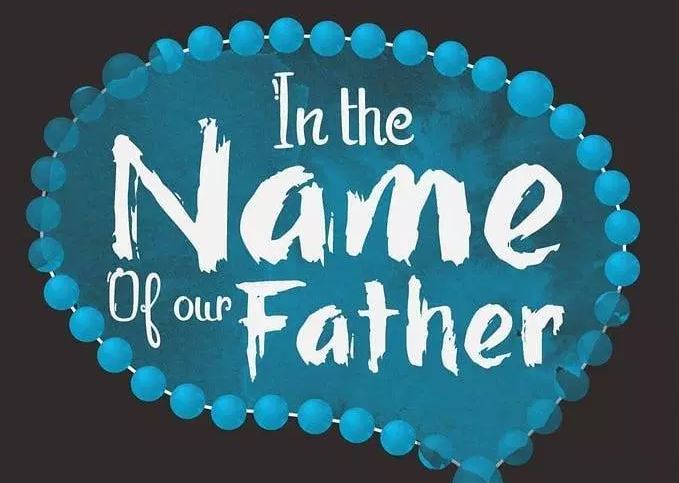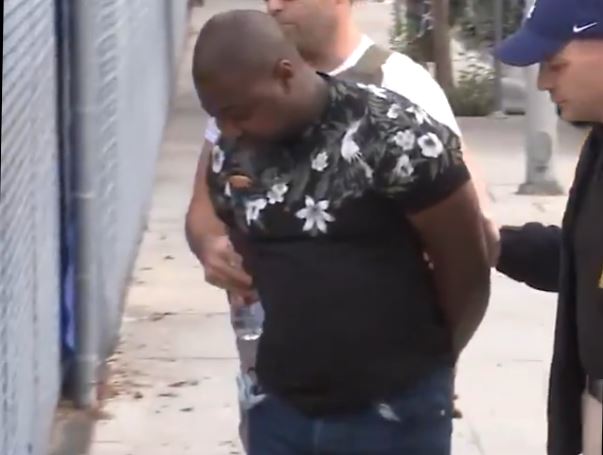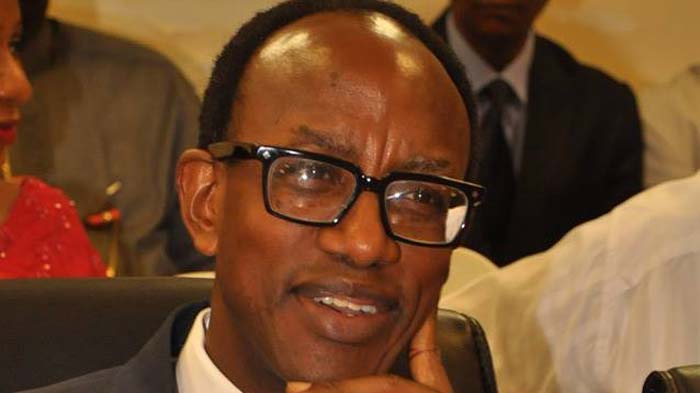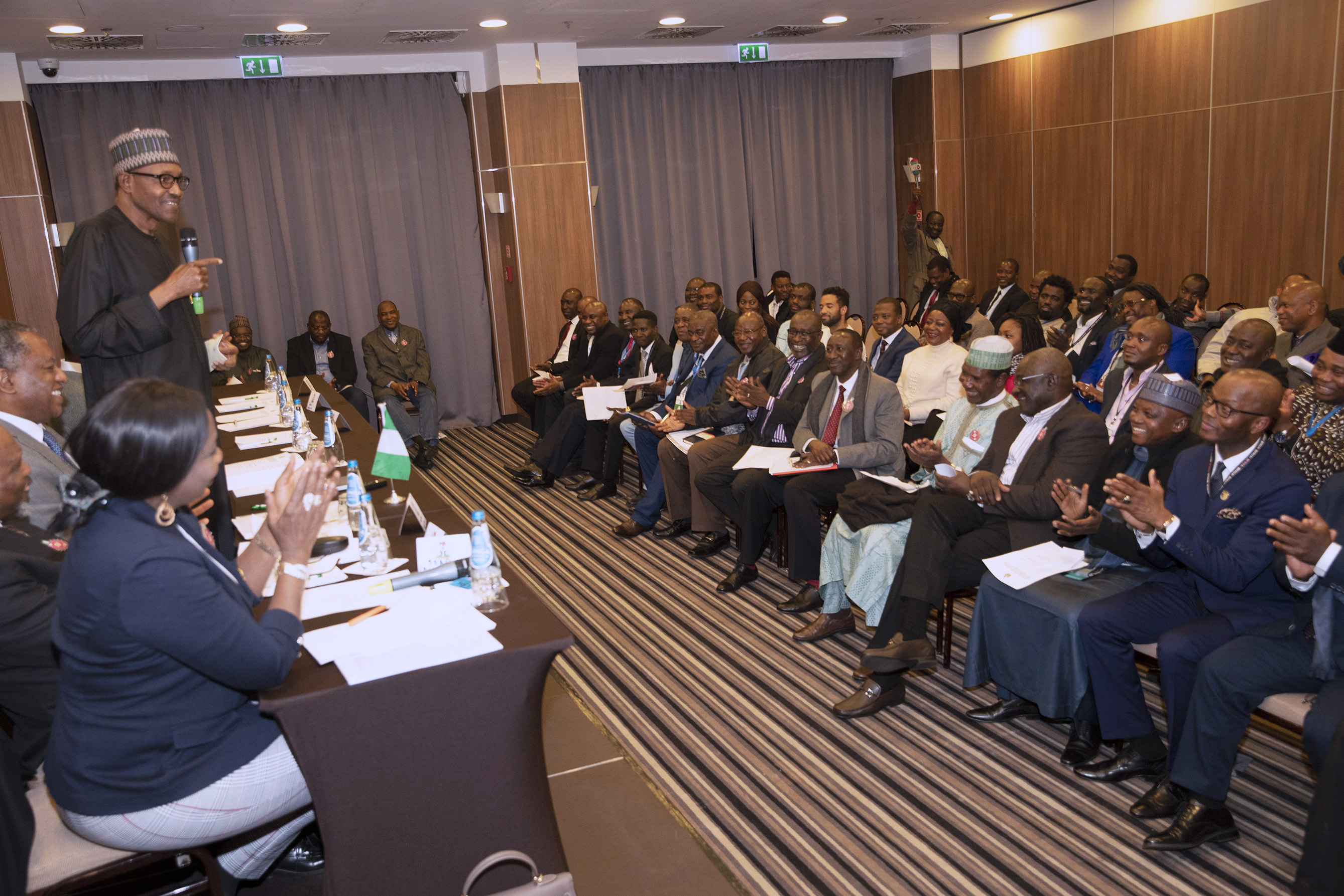BY OLUWASEYI OSO
That humanity has arrived at a point where its existential experiences are no longer cocooned in the labyrinth of ignorance is a fact with an outright conviction. This is premised on the fact that literature has served as an indefatigable tool in chronicling the events; happenings that buffet human societies, one way or the other. Every society has its own especially unique literature; in fact, every family (unit of society) has its own literature. This is why familial experiences always affect a writer when he or she writes. Why? A writer does not write from nothingness. The world impregnates the writer and he conceives it in words.
This is the case with the novel, In the Name of Our Father, an example of “Nigerian literature,” as it is a birthing; a dazzlingly continual birthing of the impregnable pregnancies of Nigeria’s realities. These realities are what writers now shape into written words, as it were, causing readers to perceive; emote and respond when need be. The writer (like Yishau Olukorede) becomes a “truth disperser” in that he heals his society of blindness through the words he is able to present as a letter written to hearts, in need of a reply. It is for this especially pertinent reason that Achebe’s Things Fall Apart (1958) becomes the ground on which most of the neo-Nigerian-literatures are fertilised. The novel’s prowess in projecting the mind of Africa, Nigeria’s pre-colonial era, makes it an archetype of a true Nigerian literature such that foreign readers are able to see; feel; and hear the African (Nigerian) mind. The novel is constructed in such a way that the psychological construction of characters is shaped by the society they find themselves. Okonkwo, the novel’s failed-hero, is shaped by the society he finds himself. This is why he takes masculinity as a prime factor because he has been cultured by his patriarchal society. Achebe takes his reader into the realm of orature making the Africanness in African prime. He projects the African themes; and it is for this reason that the novel, Things Fall Apart, has become asexual, in that it has been capable of generating many-sided critical views. Many thematic concerns have been expunged from the text.
Accordingly, these living realities are what we seem to refer to as thematic concerns in the sense that they are the ink that allows the pen of a Nigerian writer to put words on paper. Many critics have attested to the fact that it is quite impossible for the African creative writer to write without the influx of African social and political realities. It is the contemporary issues in Nigerian that generate different themes such as “gender”, “politics”, “corruption”, “anti-colonialism”, “quest for identity”, “religion”, “marriage”, “ethnicity”, “racism”, “war and post-war”; and many more. These themes become a ground on which a writer’s ideology is infinitely fertilised; and as long as these Nigerian realities persist, Nigerian literature continues to exist.
Advertisement
The foregoing is what informs the novel, In the Name of Our Father, as it chronicles the socio-political happenings that buffet the Nigerian society. The characterisation of Justus Omoeko is at par with individuals who stood as forces of truth in the Nigerian past to fight the deadly acts of the military government. It shows the shackles, in which change-makers are thrown, in the Nigerian cosmogony. This is why we also have the character of Alani, who changes his name to Prophet T.C. Jeremiah, abandoning his impoverished life for a business of hypocrisy and false Christianity. He oppresses his congregation with deception and diabolical power which he reinforces with 8-day old baby. His thirst for power also allures him to the incorrigible head of state who desists from handing over his government to another as he promised. The novel explicates the horrendous situation that religion and politics—two profound institutions in humanity—have caused the Nigerian society. Religion affects politics, and politics affects religion. They both work in tandem to ensuring a well-defined society. But, here, what we see is a wrongly-defined society where politics and religion foster corruption and pursuit of power; poverty and ambition; religious gullibility and hypocrisy; sexual immorality, marriage and female oppression. These aforementioned themes, therefore, will be the preoccupation of this essay.
The novel, through the characterisation of Pastor David and Prophet T.C. Jeremiah, crystallises the multifarious ways in which people are being deceived through religion; and a belief in a man of God who is aimed at amassing wealth and fame, in the name of the father (God). Alani, a latterly poor man, abandons his family “…while he would try to start a new life afresh in a new land” (25). He seeks tutelage in the deceptive profession his friend, Pastor David, introduces to him; and as a result of his hunger for an especially different life, he indissolubly joins “The Brotherhood” to instill a magical power in him for his fake ministry. It is for this reason that he changes his name to Prophet T.C. Jeremiah. He uses religion as a mask to deceive the masses as well as men of power. It is this mask that Yishau unfurls in his novel. The prophet allures ministers to himself through a false prophecy that they were bound to die. He continues his devious act because they were not convincingly aware that “the few occurrences that looked like miracles were really not miracles. They were mere co-incidences. But since they were gullible, they could not distinguish between miracles and mere-co-incidences” (151-152). The writer evidences the social exploitation attached to a religious mask. Tosin tells Alani that “the man of God wanted a thousand naira. She pleaded with the miracle worker to accept half of the fee” (22). What this examples is the act of untruth being perpetuated by a religious institution that should stand as a pillar of truth and opposition to immoral demeanours in the society. Instead, the so-called men of God sleep with women, deceitfully; they amass wealth through people, in the name of the father. The theme expounded here is largely among the harsh realities present in the Nigerian society.
One cannot gainsay the assumption that it is the pursuit of power in Nigerian politicians that spawns corruption. This is true in the sense that power is powerful and sweet, and no one wants to remain outside power; rather the insatiable human being wants to control power. This is the case with the Commander-in-Chief, General Idoti, in the novel, who confides in atrocious acts to remain in power. He reprimands Justus for writing a newspaper article which he thinks could usurp him. This is why he takes refuge in Prophet T.C. Jeremiah who “was more than prepared to enslave General Idoti under the guise of providing spiritual counseling. He was going to make a super-slave out of him. And in turn he would make billions of Naira” (113). General Idoti and Prophet T.C. Jeremiah (religion and politics) are fleshed with corruption and thirst for power. The prophet’s plight is to control the decisions of the General as long as he remains gullible. He goes as far as ensuring the imprisonment of Justus who bears the archetypal image of “a hero as a saviour,” ready to bear the burden of truth. Justus becomes a scapegoat trying to salvage his nation from corruption by exposing the inane performances of the two major institutions in his society—religion and politics. Justus is sentenced into life imprisonment, at first, by fighting with his pen. This is an allusion to the person of Ken Saro-Wiwa, who fought with his pen before he became a scapegoat. General Iya who admittedly plans a coup to overthrow the power-drunk General Idoti becomes a scapegoat, too. He tells Justus about “how the Head of State had stashed money in coded accounts abroad” (216). This exposes the corrupt psychological construction that many Nigerian leaders have. This is why they desire to spend more time in office like General Idoti.
Advertisement
One can assert that poverty does not only afflict the living, the unborn, at times, experiences poverty. This is at par with Tosin’s unborn child. She dies because Alani (Prophet T.C. Jeremiah) cannot endure having a child as a result of penury. She aborts the child and dies in the process. It is the psychic pain of poverty that leads Alani to the prison of Ambition. He becomes a prisoner of ambition, using certain defense-mechanisms to prevaricate his past life. It is the covering of this past life that builds neurosis in him, which later results in a psychological crisis. He kills Prophet Hezekiah whom he feels is a threat on his road of ambition. He does not wish to return to his downtrodden state. He wants to remain in his transformed status quo like Brother Jero, in Soyinka’s The Trials of Brother Jero. Thus, one can aver that one of the thematic concerns of the text is consonant with poverty and ambition.
It is necessary to put that Yishau reiterates situations of sexual immorality and female oppression through the portraiture of characters like Rebecca, Abeke (Alani’s wife), Georgina, female-inmates, Nkechi and General Iya’s wife. Rebecca engages in prostitution before she meets the Prophet. She becomes skeptical for a while but after several persuasions she marries the prophet who uses her as a bait to strengthen his diabolical power by entangling her with miscarriages. The prophet also initiates an affair with Nkechi, his church member, and hopes that she would birth a child for him. It turns out that the pregnancy does not belong to him but to a man that abandoned Nkechi in the past. He comes back to claim ownership of the pregnancy after he has attained a wealthy height. This connotes the subjugated state of the woman in a patriarchal society where a woman is socially programmed to be rescued from her suppressed state by a man. Rebecca is salvaged from prostitution by the Prophet. Georgina becomes a victim because she does not agree with her father’s precision that she should marry a man she is not interested in; her father murders her ambition to study Mass Communication. It is for this reason that Beauvoir maintains that women should not be content with investing the meaning of their lives in their husbands and sons, as patriarchy encourages them to do. As Jennifer Hansen observes, “Beauvoir strongly believed that marriage . . .trapped and stunted women’s intellectual growth and freedom” (qtd in Tyson, 2006:97). Rebecca becomes a proto-feminist when she deviates from the prophet to live a different life. Thus, one can say that she becomes an archetype that would be capable of changing the girl-child’s psychic belief about gender inequality when the novel is read.
It is also crystallises that male warders lure female-inmates to sex with the conviction that “the female would in return get some favours like permission to stay longer with visiting family members, amongst others” (196). What is evidenced here is the entrapment of many Nigerian women in the Nigerian society. General Idoti also rapes General Iya’s wife and tries to cocoon his action. One can, thus, suggest that the author, to an extent has verifiably exposed the realities that surround sexual immorality and female oppression.
Confessedly, one can conclude that the novel, In the Name of Our Father, unfolds the social and political realities in the Nigerian context. The themes we derive from the text are premised on these realities. It can, thus, be said that the Yishau is both a judge and a preacher. He judges the debilitating odds in his society; he also preaches the way out of the malignant sickness encumbering the Nigeria society (maybe this is why Justus Omoeko is exonerated.) It is to show that freedom can still be achieved despite the present darkness in the nation.
Advertisement
Oso, a 400-level English language student at the University of Lagos, is the winner of the In The Name of Our Father Essay competition for Department of English, University of Lagos.
Views expressed by contributors are strictly personal and not of TheCable.
Add a comment






